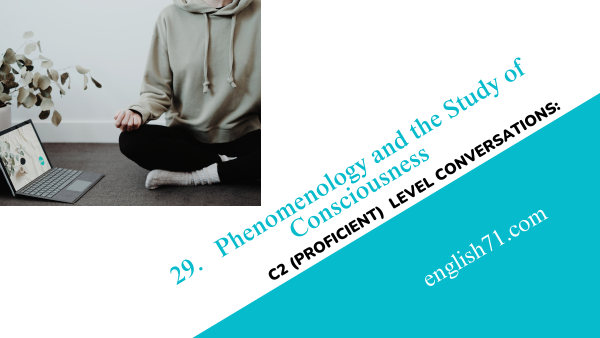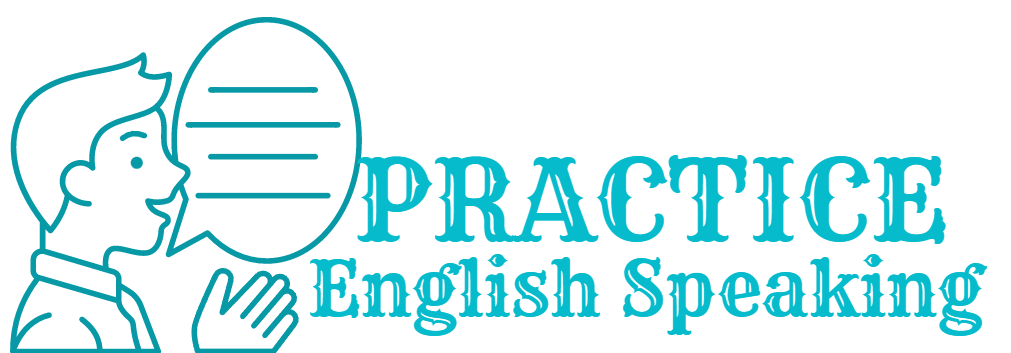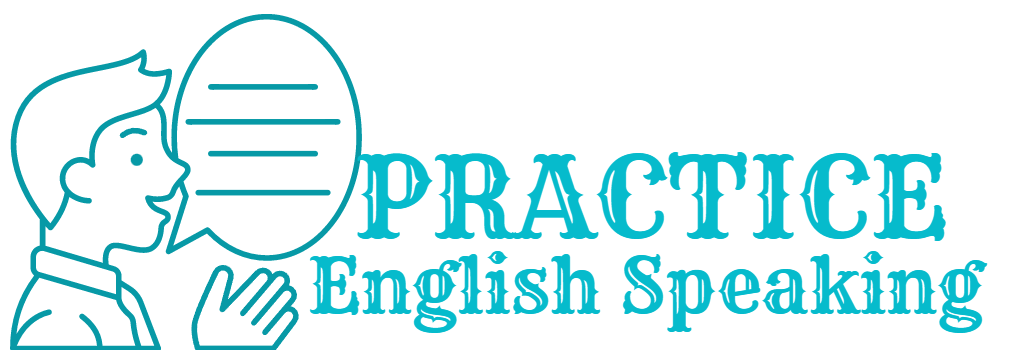C2 (Proficient) level Conversations: (29) Phenomenology and the Study of Consciousness

Zayn: Hey Layla, have you ever delved into the world of phenomenology and its relationship with consciousness?
Layla: Hi Zayn! Yes, I find phenomenology fascinating. It’s all about exploring subjective experiences, right?
Zayn: Exactly! Phenomenology is like diving into the depths of consciousness and uncovering the essence of our perceptions.
Layla: That sounds intriguing. So, how does phenomenology approach the study of consciousness?
Zayn: Well, phenomenologists like Husserl argue that we should focus on the first-person perspective, suspending judgment about the external world to understand our subjective experiences better.
Layla: Interesting. So, it’s about exploring our conscious experiences without any preconceived notions?
Zayn: Precisely! Husserl called it the “phenomenological reduction,” where we bracket our assumptions and delve into the pure experience itself.
Layla: That’s profound. But how do phenomenologists analyze these experiences?
Zayn: They emphasize the concept of intentionality, which means that consciousness is always directed towards something. For example, when we see an object, our consciousness is directed towards it, shaping our experience.
Layla: So, it’s not just about what we perceive but also how we perceive it?
Zayn: Exactly! And that’s where Merleau-Ponty comes in. He introduced the idea of embodied consciousness, highlighting the inseparable connection between our bodies and our experiences.
Layla: That’s fascinating. So, our consciousness is not just a detached observer but deeply intertwined with our physical existence?
Zayn: Yes, precisely! Merleau-Ponty believed that our bodily experiences shape how we perceive the world, challenging the traditional dualistic view of mind and body.
Layla: Wow, this opens up a whole new perspective on consciousness. But how do you think phenomenology can contribute to fields like psychology and neuroscience?
Zayn: Well, it offers a unique approach to understanding subjective experiences, which could help psychologists delve deeper into the human mind. And for neuroscientists, it could provide insights into how the brain processes conscious experiences.
Layla: Absolutely! It seems like phenomenology has vast implications across various disciplines. Thanks for the enlightening conversation, Zayn!
Zayn: Anytime, Layla! Phenomenology is a never-ending journey of exploration into the depths of consciousness.



Summary:
Zayn and Layla engage in a deep conversation about phenomenology and its relation to consciousness. They explore the concept of phenomenological reduction, where one suspends judgment to understand subjective experiences better. Zayn explains the notion of intentionality, highlighting how consciousness is always directed towards something. They also discuss Merleau-Ponty’s idea of embodied consciousness, emphasizing the connection between the body and subjective experiences. Zayn suggests that phenomenology could offer valuable insights to fields like psychology and neuroscience. Overall, their dialogue sheds light on the profound implications of phenomenology in understanding consciousness.

